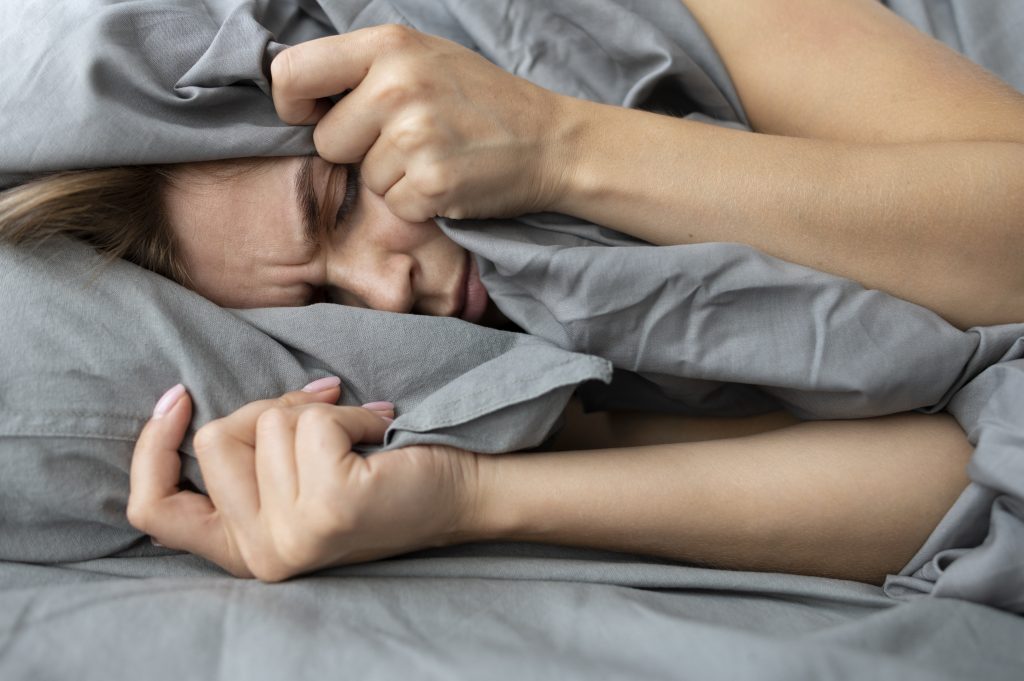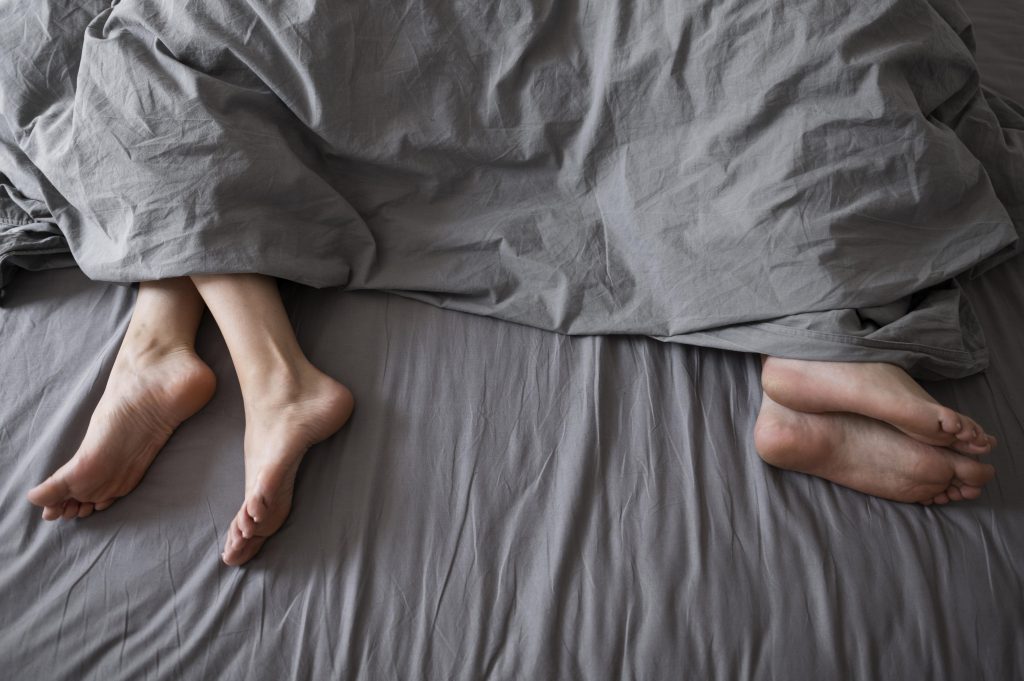We’ve all been there. Staring at the ceiling at 2am. Clock-watching. Mind racing. And even when we do fall asleep, we wake up groggy, drained, and wondering how we’re going to get through the day ahead.
Poor sleep can creep in slowly, or it can hit you like a truck seemingly overnight. And for many women in their 30s and 40s, hormonal shifts during perimenopause and menopause can be a huge contributing factor. Fluctuations in oestrogen and progesterone, two key sleep-regulating hormones, can wreak havoc on your once blissful night’s rest.
The good news? You’re not powerless. There are plenty of natural ways to support better sleep without reaching straight for sleeping pills. Here are 7 tried-and-tested strategies to help you sleep better, feel better, and get back to being you.
- Create a consistent wind-down routine
Your body thrives on routine. Try going to bed and waking up at the same time each day, even on weekends. About 30-60 minutes before bed, begin winding down with calming rituals like a warm shower, gentle stretches, or reading a book (preferably not on your phone).
- Limit screen time before bed
Blue light from phones, tablets and laptops interferes with your body’s melatonin production (a hormone that helps you sleep). Try switching off screens an hour before bed, or at least using a blue light filter in the evening.
- Keep your bedroom cool, dark and calm
Your sleep environment matters. Aim for a room temperature around 18°C, block out external light with blackout blinds, and remove any noisy distractions (we see you, snoring pets).
- Reduce caffeine and alcohol
Both can interfere with deep, restorative sleep. Try limiting caffeine after midday and opt for herbal teas like chamomile or lemon balm in the evening. Alcohol might make you feel sleepy initially but can lead to more frequent wakeups during the night.
- Move your body
Regular, gentle exercise has been shown to support better sleep quality and reduce stress levels. Try yoga, a daily walk, or low-impact workouts. Just avoid intense workouts too close to bedtime.
- Watch what (and when) you eat
Heavy meals late at night can disrupt sleep. Try to finish eating at least 2-3 hours before bed. If you need a snack, go for something light and sleep-supportive like a banana or a handful of almonds.
- Support your body with natural supplements
Sometimes your body needs a little extra help. That’s where The Art of Sleep comes in. Our carefully crafted formula includes Chamomile, Lemon Balm, and Magnesium – all chosen for their ability to help soothe the mind and support deep, restful sleep. No grogginess, no chemicals – just a little support where you need it most.
Still struggling to drift off?
You’re not alone, and it’s not your fault. Hormonal changes and modern life can make good sleep feel elusive – but small, consistent changes can make a world of difference.
Discover more about how The Art of Sleep can help you reclaim your nights







